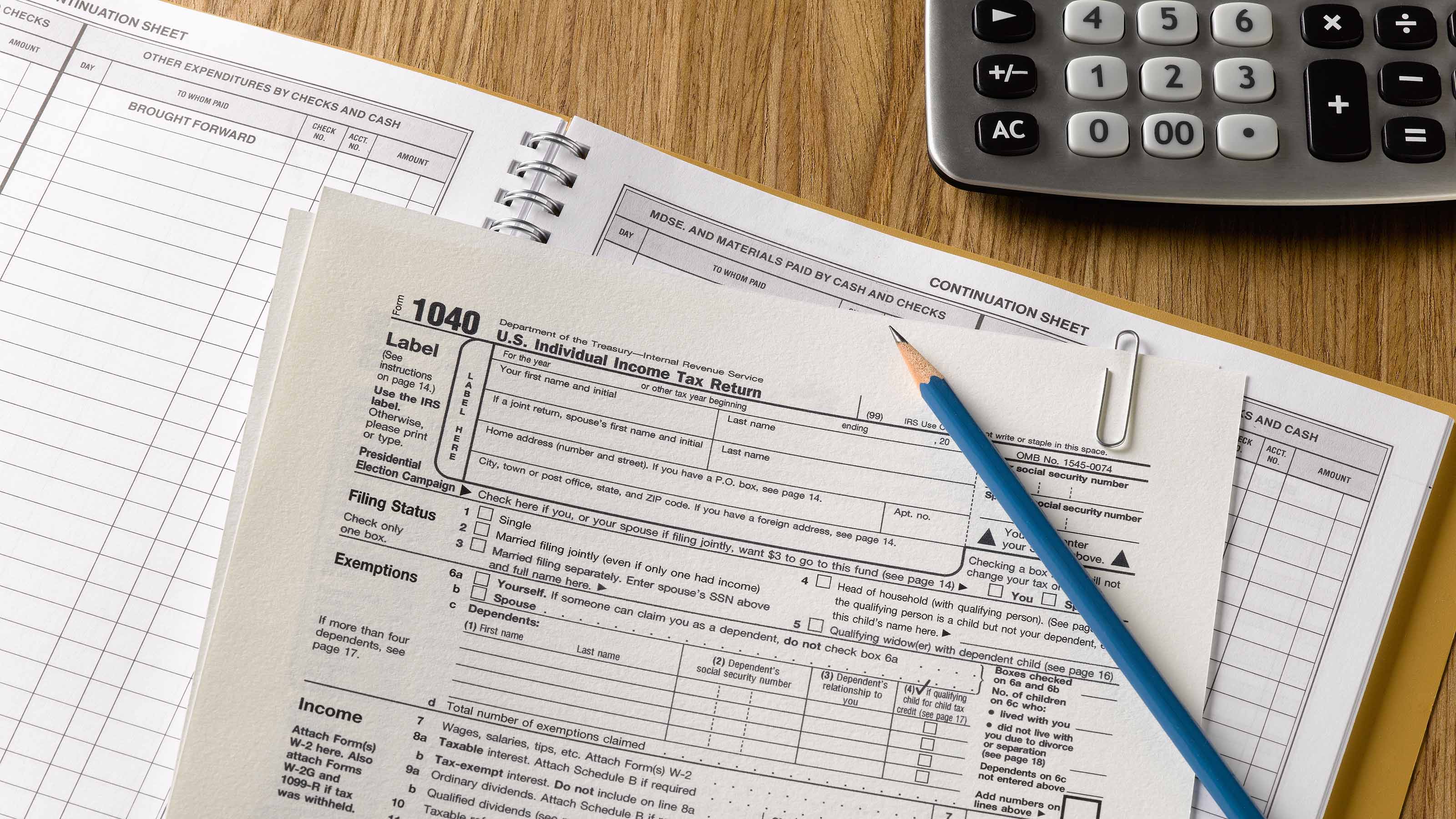The Finances of Joint Custody Agreements: 10 Things You Must Know
Ending a marriage can be difficult, but don't let that deter you from working with your ex to help ensure your children are taken care of financially.


Profit and prosper with the best of Kiplinger's advice on investing, taxes, retirement, personal finance and much more. Delivered daily. Enter your email in the box and click Sign Me Up.
You are now subscribed
Your newsletter sign-up was successful
Want to add more newsletters?

Delivered daily
Kiplinger Today
Profit and prosper with the best of Kiplinger's advice on investing, taxes, retirement, personal finance and much more delivered daily. Smart money moves start here.

Sent five days a week
Kiplinger A Step Ahead
Get practical help to make better financial decisions in your everyday life, from spending to savings on top deals.

Delivered daily
Kiplinger Closing Bell
Get today's biggest financial and investing headlines delivered to your inbox every day the U.S. stock market is open.

Sent twice a week
Kiplinger Adviser Intel
Financial pros across the country share best practices and fresh tactics to preserve and grow your wealth.

Delivered weekly
Kiplinger Tax Tips
Trim your federal and state tax bills with practical tax-planning and tax-cutting strategies.

Sent twice a week
Kiplinger Retirement Tips
Your twice-a-week guide to planning and enjoying a financially secure and richly rewarding retirement

Sent bimonthly.
Kiplinger Adviser Angle
Insights for advisers, wealth managers and other financial professionals.

Sent twice a week
Kiplinger Investing Weekly
Your twice-a-week roundup of promising stocks, funds, companies and industries you should consider, ones you should avoid, and why.

Sent weekly for six weeks
Kiplinger Invest for Retirement
Your step-by-step six-part series on how to invest for retirement, from devising a successful strategy to exactly which investments to choose.
Ending a marriage, especially when a child (or multiple children) is involved, is challenging on so many levels. We’ll deal here with the personal finances of co-parenting, and there’s a lot of money at stake -- and we’re betting that you don’t want to be on the losing end of any financial dealings with your ex. In addition to splitting assets accumulated over the years with your soon-to-be former spouse, you’ll need to find some common ground to map out a plan to fund the care and support of your kids until they’re at least 18 years old.
The state court system steers divorcing couples toward a divorce decree, which is a court order detailing the agreed-upon conditions of your divorce. It establishes alimony and child-support payments, sets a visitation schedule for the noncustodial parent, establishes new beneficiaries for financial assets, and divides any shared debt, according to LegalZoom.com.
“It’s often hard for those going through a divorce to focus on the now -- and the future,” says Lazetta Rainey Braxton, a certified financial planner and chair of the Association of African American Financial Advisors (AAAA). You’ll need to be organized and transparent, and you must advocate for yourself and your family during the negotiation process. “The clearer you are about what you can afford, the better you’ll be able to negotiate your part in caring for your children,” Rainey Braxton adds.
Once the divorce decree has been finalized, it becomes legally binding. So if you decide a year or two later that you’d like to make modifications, that can get pricey because it requires going back to court.
We’ve talked with several experts about how to best navigate child-related money matters after a divorce -- from claiming dependents on a tax return to having financial check-ins with your ex. Here’s what they had to say.

There Are Apps for Tracking and Sharing Child-Care Expenses
Even with a divorce decree as your guideline, there are still plenty of details to be worked out along the way, says Jeffrey A. Drayton, a certified financial planner and founder of Jeffrey A. Drayton Financial Planning & Wealth Management in Maple Grove, Minn. Things can get tricky when it comes to the accounting of shared expenses, especially if multiple children are involved and if there’s a significant disparity in income levels, he notes.
Who will foot the bill for, say, a youth soccer league or school supplies? How and when will the other parent pay back his or her agreed-upon share? What’s your process for agreeing to new unplanned expenses? How will you track it all?
Drayton recommends using a co-parenting app such as Our Family Wizard. It allows divorced parents to send messages to each other, use a shared calendar to document scheduled visits and other pertinent dates, track shared expenses and send reimbursement requests in real time. There are one- and two-year subscription plans available with fees ranging from $99 to $209.97.

Only One of You Gets to Claim the Kids as Dependents on Your Tax Return
The spouse who's determined to be the custodial parent can claim any children as dependents on his or her tax return. Custodial parents are defined as “the parent with whom the child lived for the longer period of time during the year,” according to IRS.gov. Being able to claim a child as a dependent means you can claim either the $2,000 child tax credit (only for kids 16 years old or younger) or the $500 credit for other dependents (if the kid is 17 or older and meets certain other requirements). Plus, only the custodial parent can claim the head-of-household filing status, the credit for child and dependent care expenses, the exclusion for dependent care benefits, the earned income credit, or the health coverage tax credit.
The custodial parent also gets to reap the financial benefits of any federal stimulus payments directed to dependents. The two leading stimulus proposals call for either a $1,200 payment to each dependent (up to a maximum of three dependents) or a $500 payment to each dependent (with no maximum number of dependents).

The Tax Rules on Alimony Payments Have Changed
With the passage of the Tax Cuts & Jobs Act of 2017, alimony payments are no longer tax deductible if your divorce was finalized after December 31, 2018. And alimony income no longer counts as taxable income for the recipient.
For divorces finalized prior to January 1, 2019, the paying spouse can write off alimony payments on their tax return to lower their annual tax bill. The payments are considered income for the receiving spouse and taxed accordingly. It’s important to note that pre-2019 divorce decrees can be modified to state that the repeal of the deduction for alimony payments applies. This also means that any payments received after the modification has been finalized will no longer be counted as part of the recipient’s gross income.

Choose Health Coverage for Your Children Wisely
Before deciding which parent should cover each child on their health insurance plans, you should go over a few questions: Does your son or daughter have preferred care providers? If so, which parent’s plan includes these doctors as part of their in-network providers? If they aren’t included and switching doctors isn’t an option, which plan offers the best out-of-network coverage? This latter question is crucial, especially if your child has a health condition that requires extra support, says Avani Ramnani, a certified financial planner and director of financial planning and wealth management for Francis Financial in New York City.
Once you’ve discussed each question, you may discover that the non-custodial parent has better health care coverage.
Each parent’s share of health costs for the kids -- including health-insurance premiums and out-of-pocket costs -- should be governed by the divorce decree.

Set Up a Personal Emergency Fund
After years of sharing family-related expenses and contributing to a joint savings account, you’ll need to figure out how to manage a household budget as a single parent. This includes making monthly car payments (and buying gas), entertainment expenses, as well as contributing to an emergency fund. The latter is crucial for newly single parents to act on right away in case they get hit with a major unexpected cost, such as an automotive repair or having to replace a HVAC system in their new home. These are both situations that could suddenly impact your ability to care for your children on scheduled visitation days.
You’ll want to have at least 6 to 12 months’ worth of savings, advises Jamie Lima, a certified financial planner and founder of Woodson Wealth Management, which is based in San Diego, Calif. For those who can’t afford to stash that much cash all at once, you can build up your emergency fund over time. Start out by setting up a savings account with your bank of choice and depositing a set amount on a weekly basis [and leaving the account alone], Lima says. For example, if you put $100 a week into the account starting in January, you’ll have saved nearly $5,000 by year’s end.
Taking this added measure is not about gaining leverage in the courtroom over your ex-spouse, but rather demonstrating financial security during and after a divorce, Lima adds. You want to be able to provide a lifestyle that's similar to what you previously had when kids are involved, he notes.

Divorce Forces You to Make Estate Plans
It’s imperative for co-parents with minor children to establish and share estate plans that will provide for your children if you or your ex pass away, suggests Francis Financial’s Ramnani. If one parent dies, the custody of the kids usually goes to the surviving parent unless he or she is deemed unfit. (Things can get a bit more complicated if both parents pass away without having a detailed plan, Ramnani warns. In this situation, the state court system will determine who the legal guardian for any minor children should be. In most cases, they will choose a close relative such as a grandparent or sibling, according to Nolo.com.)
If you want the person in charge of making financial decisions on your children’s behalf to be someone other than the legal guardian you’ve chosen, you’ll also need to include that in your estate-planning documents, Ramnani notes. For instance, perhaps you’ve chosen a grandparent as the legal guardian, but would prefer that one of your more financially savvy siblings handle any money-related issues.

Your Custody Arrangement Affects College Financial Aid for Your Kids
When your son or daughter applies for financial aid using the Free Application for Federal Student Aid (FAFSA), only the income and assets of the custodial parent are used on the form, notes Robert Falcon, a certified financial planner and founder of Falcon Wealth Managers, which is based in Concordville, Penn. If the custodial parent doesn’t have the lower income or assets, the former spouses should discuss the possibility of having their teen move in with the lower earner for at least one year prior to starting the 12th grade and throughout their senior year. This will help maximize any federal financial aid your son or daughter may qualify for, Falcon adds.
If both parents agree to go this route, you’ll need to modify the child custody order to reflect who you’d like the new custodial parent to be.

You Should Have Regular Financial Check-Ins With Your Ex
The end of a marriage doesn’t necessarily mean you won’t ever have to see or speak to your former spouse again -- especially if there are young children involved. There are situations, such as getting laid off, that might come up along the way and impact your ability to make timely payments. As a result, your co-parent will need to be flexible. Consider having regular check-ins to discuss any pertinent money-related issues, says Karen Bonnell, a Kirkland, Wash.-based co-parenting coach and author of The Co-Parenting Handbook: Raising Well-Adjusted and Resilient Kids. Conducting these meetings on a quarterly basis should suffice, barring any sudden emergencies.
It’s important to set boundaries at the outset and focus solely on shared financial priorities that pertain to your children. Criticizing each other’s financial decision-making or values should never be up for discussion, Bonnell notes. Remember, this is a high-level business function on behalf of your kids and their overall well-being. You’ll want to use your divorce decree as a guide for following any financial considerations, says Francis Financial’s Ramnani. Having this documentation handy will help put a system in place for communicating any current budget-related issues or future expenses, she adds.
If you and your ex are still cordial, the meeting could be conducted in-person or over the phone. After each meeting, you’ll want to confirm via e-mail any agreed-upon next steps. If you aren’t on the best of terms, a regular, concise e-mail addressing financial matters related to your kids may work best.

You May Need to Go Back to Court
You may enter a co-parenting situation with the best intentions, but sometimes things don’t go as planned. What happens when one parent doesn’t hold up his or her end of the financial agreement -- perhaps making late payments or missing them altogether, with little explanation as to why? You may want to have the courts reexamine your divorce decree -- specifically the terms surrounding any child-support obligations.
If it’s determined that your former spouse isn’t experiencing a financial hardship, the courts may issue an order for automatic wage deductions from your ex’s paychecks to ensure future payments are made on time. “The state can order the [noncustodial] parent’s employer to deduct the amount owed in child support from their paycheck and send it to the local child support office or directly to the custodial parent on behalf of the child,” according to Lina Guillen, an attorney and legal editor for Nolo.com.
The courts can also decide to report that parent to the Treasury Department, which can withhold federal tax refunds or other payments, such as coronavirus economic relief stimulus checks, and send it to the custodial parent to help offset any overdue child support payments.

Expect That You or Your Ex Will Get Remarried
When a co-parent remarries, the previous divorce decree and its conditions remain intact. However, the new spouse will likely want to have his or her rights protected, much like your children’s. If there’s a possibility either of you will eventually want to remarry [to different people], it might be worth preemptively addressing this during the initial divorce proceedings, especially as it pertains to inheritance designations, suggests Chris Chen, a certified financial planner and wealth strategist for Insight Financial Strategists, which is based in Newton, Mass. That’s because when a parent remarries, the first in line to inherit the assets is the new spouse. To help protect the interests of the children from the first marriage, “a divorce agreement will sometimes specify that in the case of remarriage and an untimely death, some assets are passed to the children, whether immediately at the parent's death or at the second spouse's death,” Chen adds. This should be implemented in wills and trusts. It can help prevent any any unnecessary drama between your new spouse and your children years down the line.
Planning that far ahead may not be realistic for many still entrenched in the business of dissolving a failed marriage. If you eventually wed again, be sure to update your estate plan to include your new spouse as a beneficiary, as well as update the inheritance allocations. You’ll need to notify your former spouse if your children are minors and update any related divorce documents. If your children are adults, you should talk with them directly so they aren’t surprised by receiving a smaller percentage of your estate should you die unexpectedly.
Profit and prosper with the best of Kiplinger's advice on investing, taxes, retirement, personal finance and much more. Delivered daily. Enter your email in the box and click Sign Me Up.

Browne Taylor joined Kiplinger in 2011 and was a channel editor for Kiplinger.com covering living and family finance topics. She previously worked at the Washington Post as a Web producer in the Style section and prior to that covered the Jobs, Cars and Real Estate sections. She earned a BA in journalism from Howard University in Washington, D.C. She is Director of Member Services, at the National Association of Home Builders.
-
 Dow Leads in Mixed Session on Amgen Earnings: Stock Market Today
Dow Leads in Mixed Session on Amgen Earnings: Stock Market TodayThe rest of Wall Street struggled as Advanced Micro Devices earnings caused a chip-stock sell-off.
-
 How to Watch the 2026 Winter Olympics Without Overpaying
How to Watch the 2026 Winter Olympics Without OverpayingHere’s how to stream the 2026 Winter Olympics live, including low-cost viewing options, Peacock access and ways to catch your favorite athletes and events from anywhere.
-
 Here’s How to Stream the Super Bowl for Less
Here’s How to Stream the Super Bowl for LessWe'll show you the least expensive ways to stream football's biggest event.
-
 What to Do With Your Tax Refund: 6 Ways to Bring Growth
What to Do With Your Tax Refund: 6 Ways to Bring GrowthUse your 2024 tax refund to boost short-term or long-term financial goals by putting it in one of these six places.
-
 What Does Medicare Not Cover? Eight Things You Should Know
What Does Medicare Not Cover? Eight Things You Should KnowMedicare Part A and Part B leave gaps in your healthcare coverage. But Medicare Advantage has problems, too.
-
 15 Reasons You'll Regret an RV in Retirement
15 Reasons You'll Regret an RV in RetirementMaking Your Money Last Here's why you might regret an RV in retirement. RV-savvy retirees talk about the downsides of spending retirement in a motorhome, travel trailer, fifth wheel, or other recreational vehicle.
-
 The Six Best Places to Retire in New England
The Six Best Places to Retire in New Englandplaces to live Thinking about a move to New England for retirement? Here are the best places to land for quality of life, affordability and other criteria.
-
 The 10 Cheapest Countries to Visit
The 10 Cheapest Countries to VisitWe find the 10 cheapest countries to visit around the world. Forget inflation and set your sights on your next vacation.
-
 15 Ways to Prepare Your Home for Winter
15 Ways to Prepare Your Home for Winterhome There are many ways to prepare your home for winter, which will help keep you safe and warm and save on housing and utility costs.
-
 Six Steps to Get Lower Car Insurance Rates
Six Steps to Get Lower Car Insurance Ratesinsurance Shopping around for auto insurance may not be your idea of fun, but comparing prices for a new policy every few years — or even more often — can pay off big.
-
 How to Increase Credit Scores — Fast
How to Increase Credit Scores — FastHow to increase credit scores quickly, starting with paying down your credit card debt.
